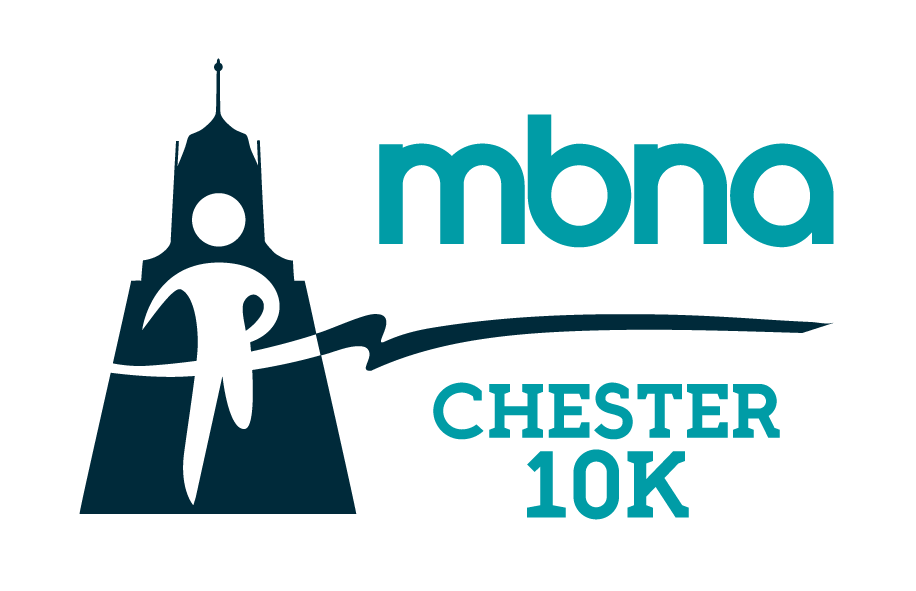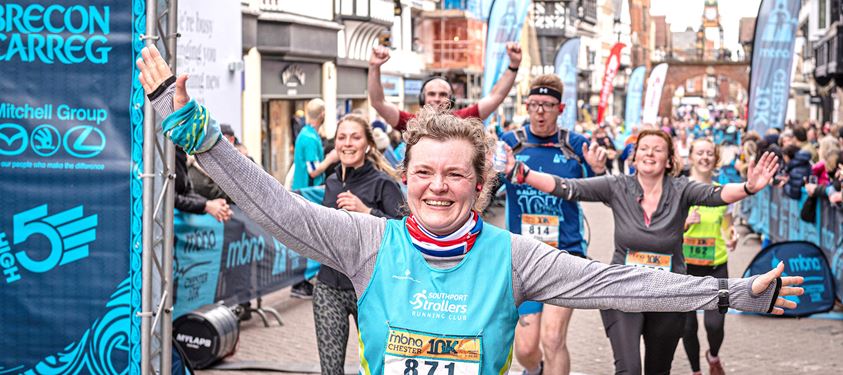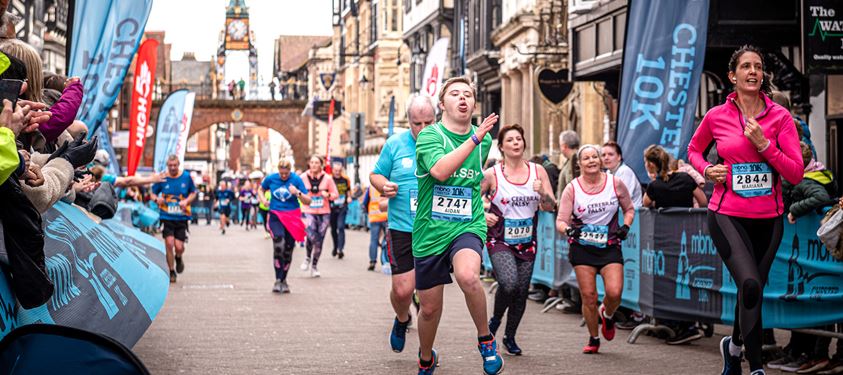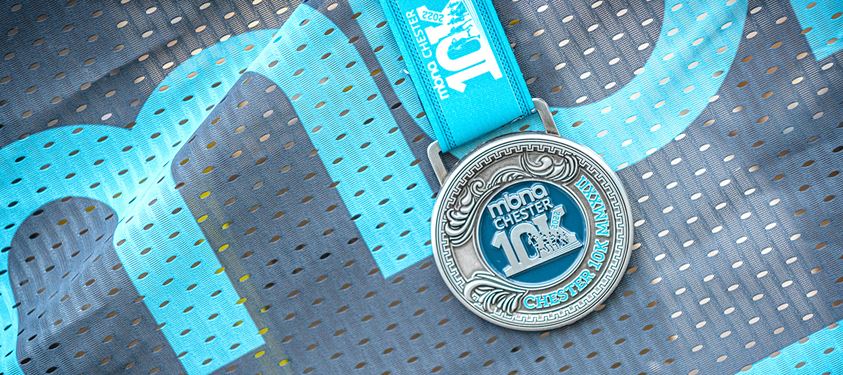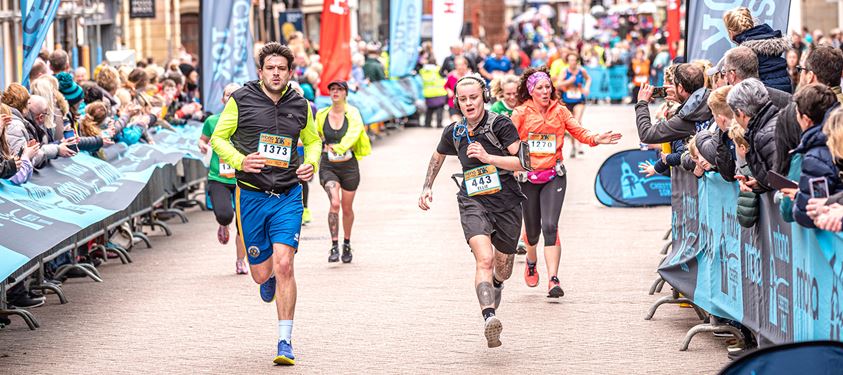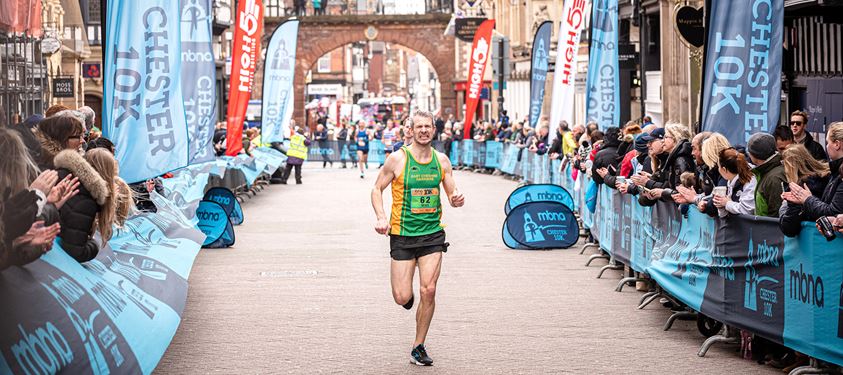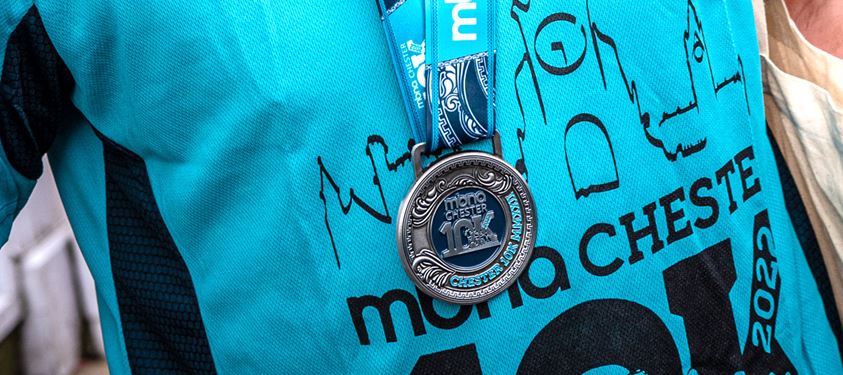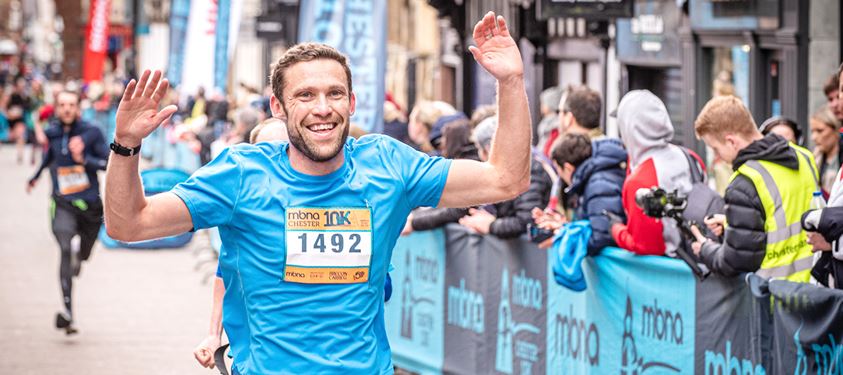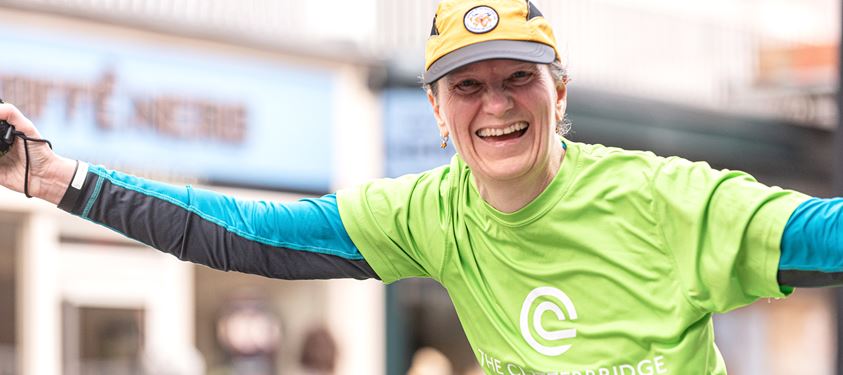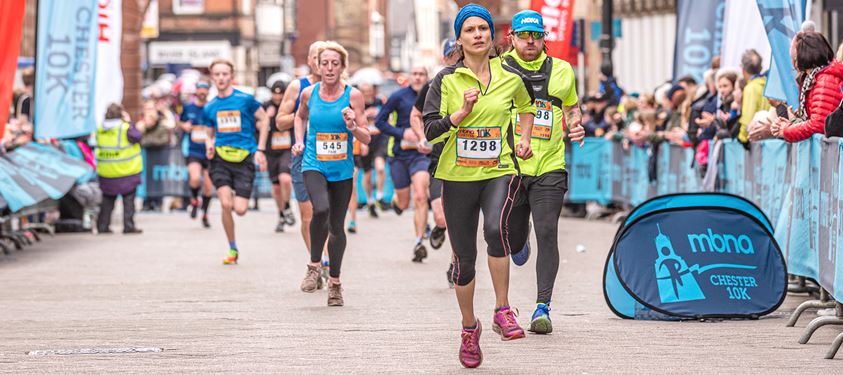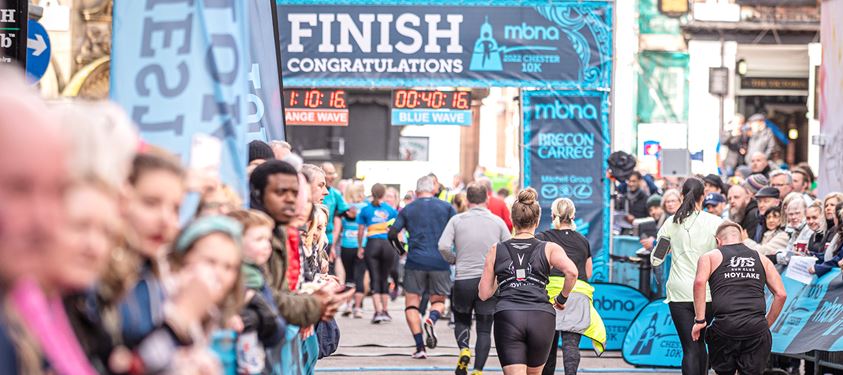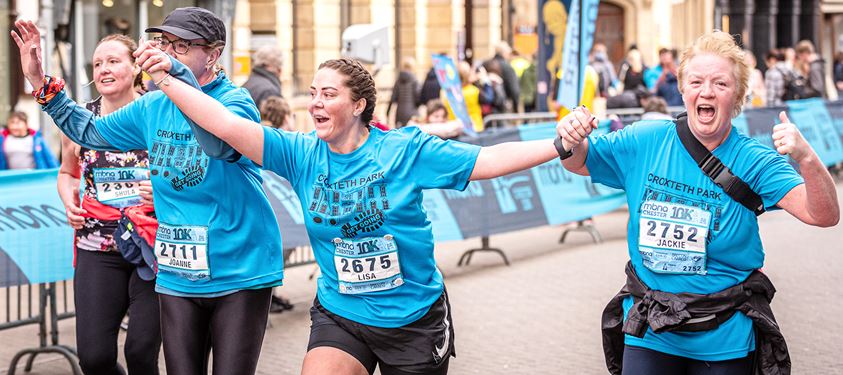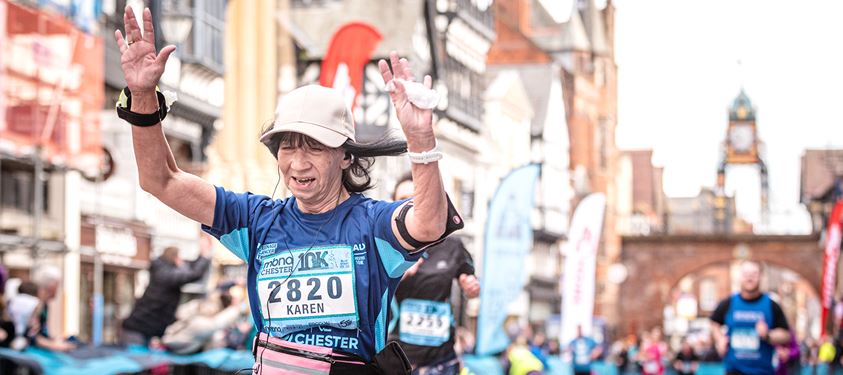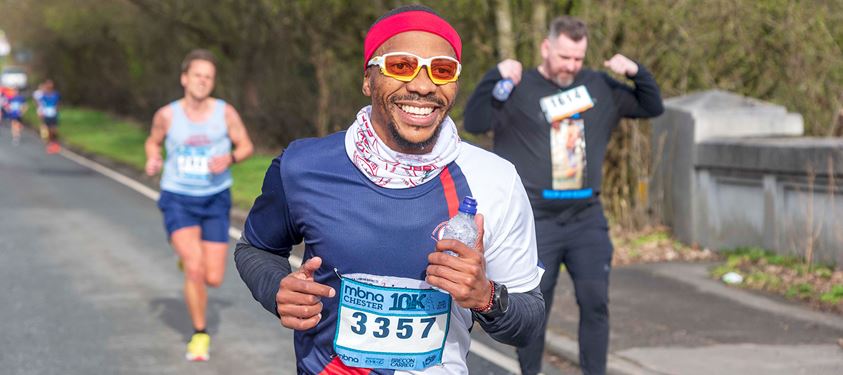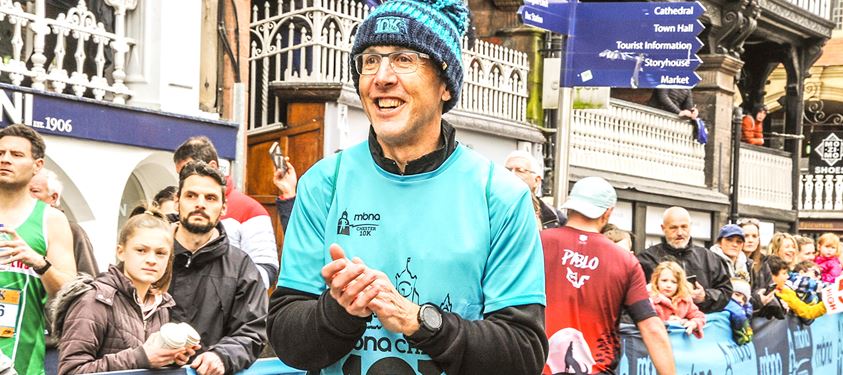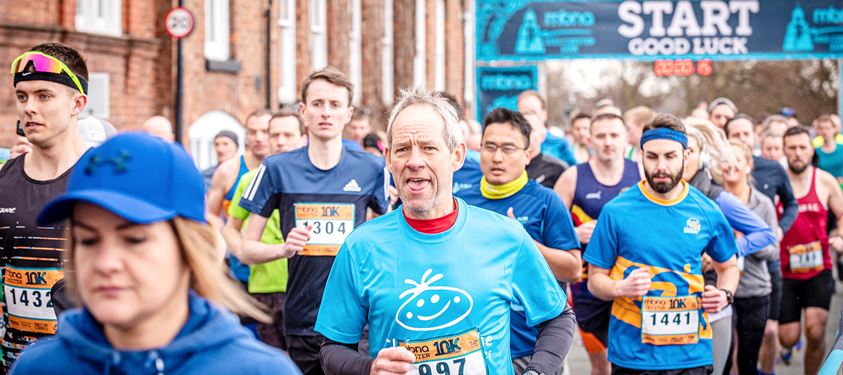Nutrition Advice to Support your Couch to 5K Challenge by Danny Webber
Nutrition plays a powerful role in supporting energy levels and body composition in our everyday lives, and when you take on a challenge to get fitter and healthier, what you eat is more important than ever. A balanced diet should be part of your lifestyle and easily adapted to support any exercise you do to ensure you are fuelled ready to complete your workout, but also to recover properly after it, too. Here are a few tips that will outline how you can structure your daily nutrition to give you the energy you need to train harder and achieve your goals.
1. If you fail to prepare…
Having a plan of action helps you to outline what you’re going to do and make you more likely to achieve your goals. The same applies to your nutrition. Little things like having a shopping list, an idea of what meals you’re going to have each night of the week and knowing which snacks are good to have before training, helps you make better decisions and structure your day and week.
2. Fuel your training
Carbohydrates are the body’s primary energy source for moderate to high intensity training so use them to your advantage! Having a good meal and/or snack before training will help fuel your training better and make you feel so much better, rather than constantly feeling like you have heavy legs, struggling to breathe and all round hating every minute.
Porridge is an ideal option before a run and including nutrient-rich foods like mixed berries and chia seeds will give you the energy boost you need!

3. Get out of dieting mode
Deliberately undereating because you’re trying to lose weight will negatively impact your energy levels and motivation to train, leaving you more likely to overeat because you’re annoyed at yourself for not going for a run. Exercise shouldn’t be a punishment or simply used as a means for losing weight. Instead you should cherish what your body can do and fuel it properly throughout the day.
4. Eat a rainbow a day
An easy way to ensure you get all the nutrients your body needs is by eating a rainbow a day. It is recommended that we consume 7-10 portions of fruit and vegetables every day, and eating a range of different colours will supply your body with a wealth of energy boosting vitamins and minerals.

5. Hydrate!
Hydration plays a key role in exercise and just a 2% drop in body weight through dehydration can impair running performance. Aim to drink at least 2L per day plus an extra 500ml per 30 mins of training. Keep a water bottle with you to remind yourself to drink little and often throughout the day and stay well hydrated. Water should be prioritised but all other liquids like cordial, tea and coffee all contribute.
6. The power of protein
The world has gone mad for protein lately having almost all foods and drinks with extra protein in it, even high protein water… Consuming enough protein is important to help the body repair and remodel damaged tissue to grow stronger and promote training adaptations, but it is also important for the immune system and many other physiological processes. It’s well known that eating protein after training helps recovery, but consuming a good source of protein with every meal and snack is a more effective way to meet your daily protein needs and maximise recovery.
Plant based diets can still provide all the protein needed for runners and meals like this winter warming 3 bean chilli will go down a treat after training!

7. Vitamin D - the sunshine vitamin
Vitamin D is primarily obtained through direct sunlight exposure and plays a major role in regulating many physiological processes including bone health and calcium homeostasis, nutrient absorption, muscle & immune function. It’s also shown that people with vitamin D deficiency are a greater risk of getting COVID-19. Vitamin D cannot be sufficiently sourced in the diet with only select foods containing small amounts (fortified milks & cereals, oily fish, shitake mushrooms). Therefore, a daily vitamin D3 supplement of 2,000 IU (50ug) will help prevent deficiency and keep you healthy during the winter months.
8. Everything in moderation!
Most diets fail because people are “too good” Monday to Friday and then the wheels fall off at the weekend. Depriving yourself of your favourite foods will make it even harder and that shouldn’t be the case. Following the 80/20 rule gives you that guilt free allowance to enjoy the things you like the most, so you’re more likely to stick to it.
9. Portion control
You shouldn’t be eating the same thing every day as you aren’t doing the same thing every day. As already mentioned, carbohydrates are the main fuel source for higher intensity training, so on your lighter days portion sizes can be reduced to focus on your recovery foods such as proteins, healthy fats (salmon & mackerel, nuts and seeds, avocado) and increased portions of your rainbow foods (vegetables and fruit).
This salmon niçoise salad is an ideal rest day meal that’s packed with nutrients to help your body recover.

10. Food first!
At all times you should adapt a food first approach. Supplements are simply to fill any gaps in a diet, or as a matter of convenience when food isn’t available i.e. protein shakes. As well as vitamin D, other supplements that you may wish to consider to prevent potential deficiencies:
- Omega 3 (if you don’t eat fish or have 1-2 portions of oily fish in a week)
- Iron and vitamin B12 (if you’re vegan or avoid red meat)
- Multivitamin (purely as an insurance policy to hit your RDAs)
Thanks to Danny Webber from Webber Nutrition for preparing this informative blog post. For more help, advice & information about performance, nutrition & more, go to www.webber-nutrition.co.uk & make sure you follow Webber Nutrition on social media @WebberNutrition on all platforms.

Never miss our training runs or special offers!
Course Record
Course Record
Men
29:20
Johnny Mellor in 2023
Women
33:50
Anna Bracegirdle in 2025
2025 Results
Men
| 1st | Matthew Clowes (Wrexham) | 31:03 |
| 2nd | Daniel Hamilton (Pontypridd Roadents AC) | 31:51 |
| 3rd | Ben Taylor (Pensby Runners) | 32:45 |
Women
| 1st | Anna Bracegirdle (Salford Harriers & AC) | 33:50 |
| 2nd | Gemma Steel (Charnwood AC) | 35:15 |
| 3rd | Fay Hughes (Wirral AC) | 37:24 |
